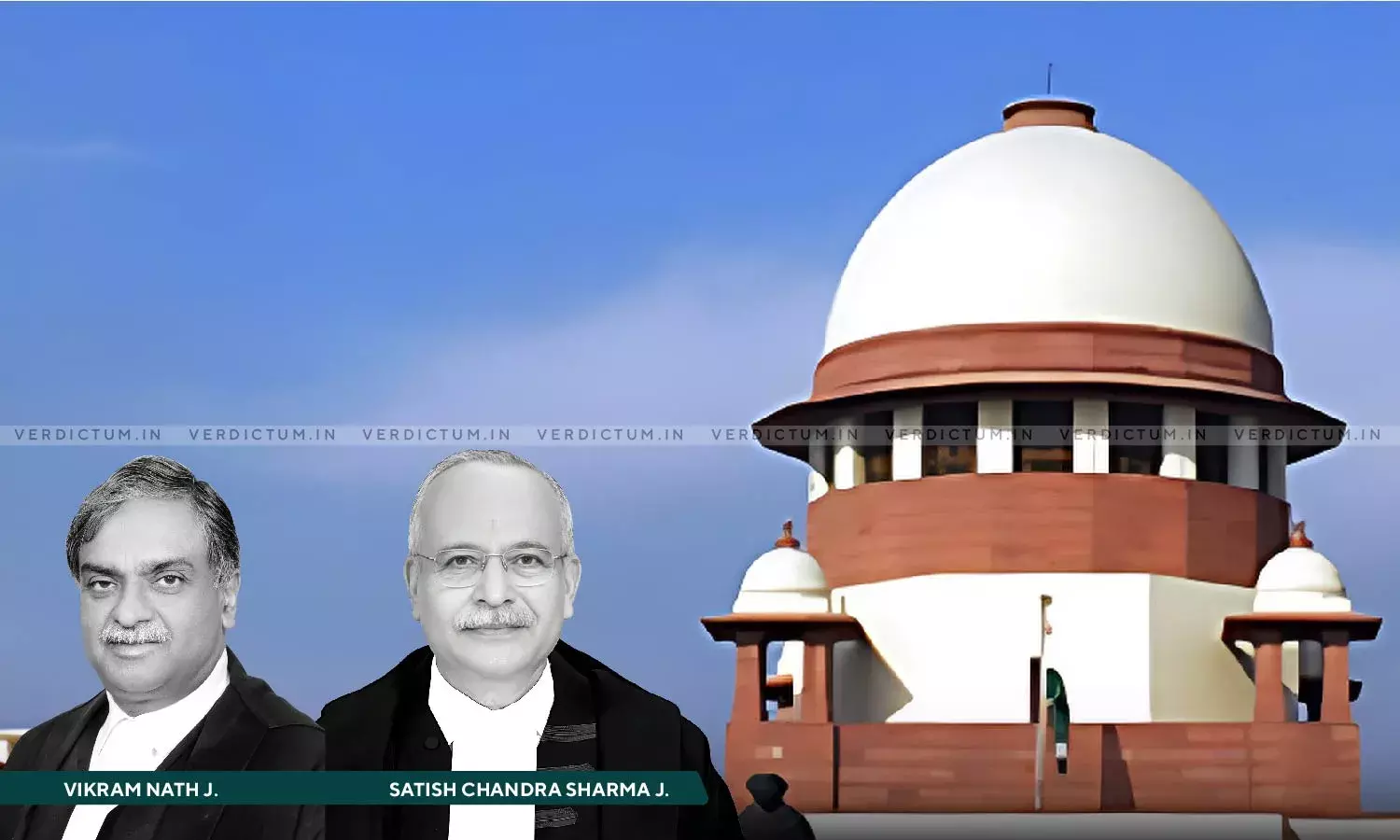Both Parties Are Professionally Qualified Doctors With Sufficient & Equal Earnings: SC Refuses To Award Permanent Alimony While Dissolving Marriage
The Supreme Court did not award any permanent alimony while dissolving a marriage noting that the parties are professionally qualified medical doctors with sufficient and equal earnings.
The Court granted the husband a decree of divorce after invoking its extraordinary powers under Article 142 of the Constitution on the grounds of irretrievable breakdown of marriage. The Court considered the long separation period of 22 years between the parties that resulted in the “demolition of their matrimonial bond beyond repair.”
A Bench of Justice Vikram Nath and Justice Satish Chandra Sharma observed, “In light of the facts and circumstances of the present case, along with powers conferred under Article 142 of the Constitution of India and judicial precedents discussed herein, we hereby grant the decree of divorce on account of irretrievable breakdown of marriage. As both the parties are professionally qualified medical doctors and have sufficient and equal earnings, we are not inclined to award any permanent alimony.”
Advocate Lalit Chauhan appeared for the appellant, while AOR Chritarth Palli represented the respondent.
The husband had challenged the impugned order of the Allahabad High Court that set aside the decree of divorce granted by the Family Court. The husband had filed a petition for dissolution of marriage under Section 13 of the Hindu Marriage Act, 1955 (HMA) on the ground of Cruelty.
The Court pointed out that despite their professional backgrounds as medical doctors, the parties had lived together for only 43 days since their marriage and had been separated for over 22 years.
Similarly, the Court stated that the wife had claimed that she was willing to live with the husband since she believed in the ‘sanctity of marriage,’ but her actions were not in consonance with her claim. “In this long period of 22 years, there was no one to stop her from living together with the Appellant…The Appellant on the other hand states that the claim of willingness to live together is falsely projected claim before the Court of law only to mislead the Court, delay the proceedings and harass the appellant,” the Court observed.
“Considering the long separation period of 22 years, lack of existence of marriage between the parties and the sour relations developed due to continuous legal battles, we deem this case to be fit for exercise of extraordinary powers conferred under Article 142 of the Constitution,” the Court remarked.
Aligning with the decision of the Constitution Bench in Shilpa Shailesh v. Varun Sreenivasan (2023), wherein it was established that the Court can dissolve a marriage on the grounds of irretrievable breakdown to do ‘complete justice,’ even if opposed by one spouse, the Apex Court stated that “we are convinced that the marriage has failed completely and there is no possibility of parties living together and thus the continuation of further legal relationship is unjustified.”
Consequently, the Bench set aside the order of the High Court and dissolved the marriage between the parties exercising powers under Article 142 of the Constitution.
Accordingly, the Supreme Court allowed the appeal.
Cause Title: A v. B (Neutral Citation: 2024 INSC 517)
Appearance:
Appellant: AOR Mrinal Gopal Elker; Advocates Lalit Chauhan, Laxmi Chauhan, Shambhavi Mansingh, Jasmine Chauhan, Manish Yadav, Nikita Chauhan, and Ankita Niranjan
Respondent: AOR Chritarth Palli



